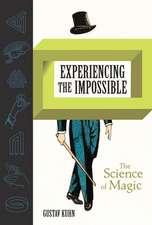Interpersonal Process in Cognitive Therapy
Autor Jeremy D. Safran, Zindel V. Segalen Limba Engleză Paperback – sep 1996
Preț: 597.07 lei
Preț vechi: 775.41 lei
-23% Nou
Puncte Express: 896
Preț estimativ în valută:
114.27€ • 118.84$ • 95.62£
114.27€ • 118.84$ • 95.62£
Carte tipărită la comandă
Livrare economică 15-29 martie
Preluare comenzi: 021 569.72.76
Specificații
ISBN-13: 9781568218588
ISBN-10: 1568218583
Pagini: 312
Dimensiuni: 152 x 226 x 17 mm
Greutate: 0.41 kg
Ediția:Softcover.
Editura: Rowman & Littlefield
ISBN-10: 1568218583
Pagini: 312
Dimensiuni: 152 x 226 x 17 mm
Greutate: 0.41 kg
Ediția:Softcover.
Editura: Rowman & Littlefield
Notă biografică
Jeremy D. Safran, Ph.D., is Professor of Psychology at the New School for Social Research in Manhattan. He is co-author of the book Emotion in Psychotherapy, and co-editor of the book Emotion, Psychotherapy and Change. Dr. Safran has published numerous theoretical and empirical articles on the therapeutic relationship and other aspects of the herapeutic process, and serves on the editorial boards of several journals including Psychotherapy Research and In Session: Psychotherapy in Practice. He also maintains a part-time practice in Manhattan. Zindel V. Segal, Ph.D., is head of the Cognitive Behavioral Therapy Unit at Clarke Institute of Psychiatry and Associate Professor of Psychiatry and Psychology at the University of Toronto. His most recent book is The Self in Emotional Distress (co-authored with Sidney J. Blatt). His research interests are in the areas of experimental cognition and psychopathology, especially the study of psychological risk to relapse in major depression. Dr. Segal is currently involved in the development of a treatment manual for depressive relapse prevention that combines elements of cognitive behavior therapy with mindfulness meditative practice. An active cognitive therapy teacher and supervisor, he directed Clarke Institute's CPA/APA Internship Program from 1990 to 1993.
Cuprins
Part 1 Part I. Theory Chapter 2 The Cognitive-Behavioral Perspective on the Therapeutic Relationship Chapter 3 Technical and Relationship Factors in Therapy Chapter 4 A Theoretical Model for Integration Part 5 Part II. Practice Chapter 6 Experiential Disconfirmation and Decentering: I.Out-of-Session Focus Chapter 7 Experiential Disconfirmation and Decentering: II. In-Session Focus Chapter 8 Accessing Action-Disposition Information Chapter 9 General Clinical Issues Chapter 10 Patient Selection for Short-Term Cognitive Therapy Chapter 11 Conclusion
Descriere
Illustrates the subtle interaction of cognitive and interpersonal factors.
















